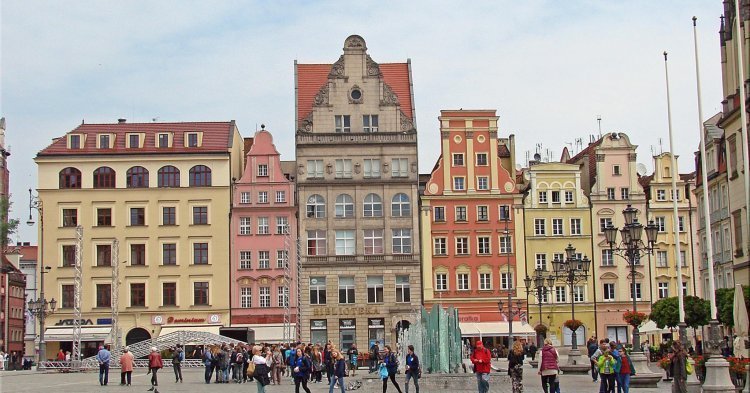One evening in 2000, when Hungarian membership of the EU was still a utopian dream, I was with Serbian friends one evening enjoying some of their famous slivovitz. After several shots, they asked me why I was sipping this divine drink and not chugging it down in one, as it should be done. I grumbled slightly into my beard: ‘You know, back in Europe everyone drinks how they like.’
As I realised what I had just said I almost sank to the ground in shame. It was a year after the bombing of Serbia; in Novi Sad the Danube bridge was still in ruins. ‘How could I have been so tactless?’, I thought, and I tried to correct my blunder. But they surprised me by saying: ‘It would actually be nice to be part of Europe, that way we could give ourselves the good bombing.’ I was taken aback by this typical European self-irony. I was even a bit envious of them, but they too are Europeans of course. ‘All right then, drink how you want,’ they said. Similar to how the EU left us to eat our Mohnnudeln after we joined, even if it appears strange to other EU countries.
We Europeans can recognise each other and are recognised all over the world, regardless of the fact that there isn’t an exact definition for what it means to be European or what a so-called ‘European identity’ entails. Is it our overwhelming Christianity? The US is more ‘Christian’ than we are, and it has overtaken us when it comes to science as well, as China soon will. To quote Italy’s former Prime Minister Enrico Letta, I wonder: ‘Do all the peoples of Europe live as minorities?’ Yes, but that’s applicable to India as well. We don’t have a single trait that would characterise us exclusively.
I can easily say how I’m Hungarian. Hungarian is the only language in which I can accurately express myself. Whereas when it comes to how I’m European, that’s when I ask myself how a German, French, Greek or Finnish person who sees themselves as European through and through does it. Up until now, we haven’t actually precisely defined what it means to be European. If anything because up until now we haven’t needed to. The situation reminds me a little bit of the young, mute, British aristocrat who starts to speak on his eighteenth birthday and says: ‘This pudding is too sour.’ When he is asked in astonishment: ‘Why haven’t you said anything until today?’ He answers: ‘Until today it was flawless.’
We don’t even have an earthly identity. As of yet no one has asked about it and will probably never will unless we encounter beings that we want to differentiate ourselves from because we perceive them as completely ‘different.’ While different people hardly ever encountered each other, we could think Europe was the centre of the world. How we were was obvious; we perceived ourselves as diverse and yet in many ways similar.
Until today we didn’t need to attribute any particular importance to this problem, like, for example, how there isn’t a sports column in a sports magazine. Everything in there naturally revolves around sport, although football, skiing, boxing and chess differ from each other greatly. The person reading a sports magazine knows exactly what belongs where. Technical help from a video referee is appropriate there, video surveillance in public spaces, however, is not, unless the video surveillance solves a problem that also occurs in certain forms of sport. Then you have to check whether this solution is also applicable to the sport, or rather whether it is in keeping with the spirit of the sport. But even if that is the case, you don’t begin to debate what sport actually is in the sports magazine, or what differentiates it from the police force for example.
Some kinds of fights undoubtedly count as sports, but a pub brawl certainly doesn’t. War is not a sport, and to understand this you don’t have to make use of the definition of fairness. Unsportsmanlike behaviour occurs in every form of sport. The players settle it between themselves, and in extreme cases, the ‘sinner’ is banned.
The EU was not brought into being so the founding fathers could uniformly advocate European values. They themselves didn’t know precisely what these are. They merely recognised that everything is better, or to put it profanely, cheaper than war. Yet war has been inextricable from European existence for thousands of years. Since the seventeenth century, no continual sixty-year period had gone by without military conflict between the French and the Germans. The great achievement of the new European spirit is the notion that we should make ourselves mutually dependent to such an extent that it becomes impossible to wage war on each other, and that has been working very well for sixty years now. It’s fine when Germany is against France in football or boxing – in war it is not.
We can in no way consider Europe to be the centre of the world, as we are increasingly encountering other cultures and being influenced by other ways of thinking. Therefore, Iit is time therefore to pinpoint what a European identity should even mean. What do we have in common, besides having been born on the same continent?
There is something which applies just to Europe: the notion that war is avoidable if we all venture to make ourselves dependent on each other to such an extent that we could not have imagined until now. In the past, secularisation and enlightenment were Europe’s radical ideas. Now they should be complemented by lasting peace.


Follow the comments: |
|
